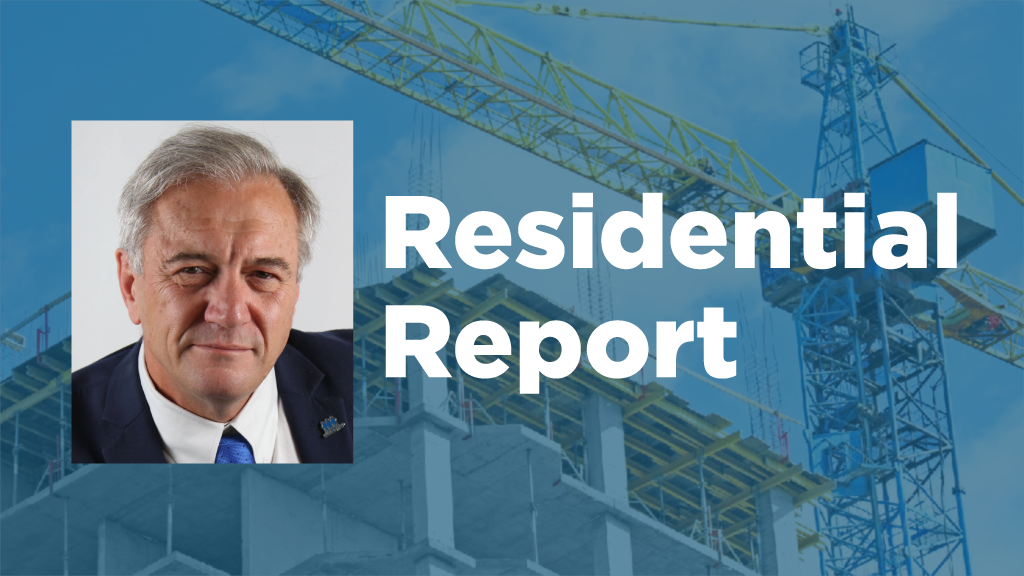With the residential construction industry in such dire straits, it is inconceivable that the City of Toronto would consider hiking fees that will make it more expensive for developers to build.
Astoundingly, that’s exactly what’s happening. The political brain trust at city hall is pondering plans to penalize developers and builders even more – and further hike the cost of a home.
Instead of incentives to encourage and promote construction of new housing, the city is looking at raising fees that are charged to developers and builders for lane closures to allow them to build.
It is absolutely ridiculous.
Recently, the city’s Infrastructure and Environment Committee released a Congestion Management Plan update that includes proposed increased fees for right-of-way occupation permits.
The committee recommended that a staff report advance for approval to city council which increases fees under the Disruption Activity Reporting System (RoDARS), the electronic right-of-way booking system that developers use to book lane closures. In addition, there are also plans to consider a Construction Congestion Management Levy that would be charged for applicants who close roads for longer periods of time. That report is to be brought back in September.
These proceedings simply make no sense in the context of the worst housing and affordability crisis that we have ever seen. New homebuyers are priced out of the market and builders are trying to do everything in their power to build houses people can afford. The city’s plans further derail that effort.
Road occupancy for new residential construction projects represents only five per cent of total road occupancies. Yet, politicians like Toronto Deputy Mayor Mike Colle think the plan is a good idea.
The residential construction industry opposes the levies as they will take a significant toll on housing affordability and the broader housing market. The measures mean more costs for homebuilders that will eventually have to be paid by new homebuyers. The fees would also apply to public utilities. So, essentially, if these companies pay the fees, it is the taxpayers who are on the hook.
RESCON and the Building Industry and Land Development Association, whose organizations represent all facets of the residential development process, wrote a letter to the committee urging its members not to proceed with the investigation of a new congestion management levy.
In a presentation to the committee, RESCON director of government relations Michael Giles also warned new homebuyers will eventually bear the burden of these new charges, further chilling housing starts.
The fees would simply be another levy added onto the cost of building. Like we don’t have enough already.
The housing market, particularly in the City of Toronto, is facing severe challenges. Only 57 new homes were sold in the city in February, a stark decline from the 938 homes typically sold in that month – a 75-per-cent decrease from February 2024 and 94 per cent below the 10-year average for the month.
But the full impact of the slowdown has yet to be felt. It will probably take two to three years for the slowdown in new housing sales to fully impact housing construction starts. Meantime, deliveries of new housing are expected to be minimal in Toronto and the GTA by 2027 and beyond.
In spite of these significant challenges, the city is still implementing higher RoDARS fees and planning a Construction Congestion Management Levy.
With historically low new home sales, stagnant residential supply, and fluctuating consumer confidence, we need decisive action to promote affordability, rather than additional costs on homebuyers.
RESCON and BILD are deeply concerned that, in the midst of this crisis, the city is hiking fees. It makes no sense.
Developers should be exempt from lane occupancy and RoDARS administrative fees. The city should also drop the idea of a congestion management levy on residential construction projects.
If the city proceeds with adding to the fees that developers must pay, the ongoing housing crisis in the City of Toronto will only get worse. It will just make building more expensive in Toronto.
Permit and RoDARS fees are already costing $98,800 for closing one lane of traffic, 20 to 50 metres in length, for four years in a construction hub. It would rise to $183,000 under the new system.
This is not the time to be bringing in higher fees and making new homes more expensive for buyers. We need a plan that will encourage homebuilding, not one that is disconnected from reality.
Richard Lyall is president of the Residential Construction Council of Ontario. He has represented the building industry in Ontario since 1991. Contact him at media@rescon.com.












Recent Comments